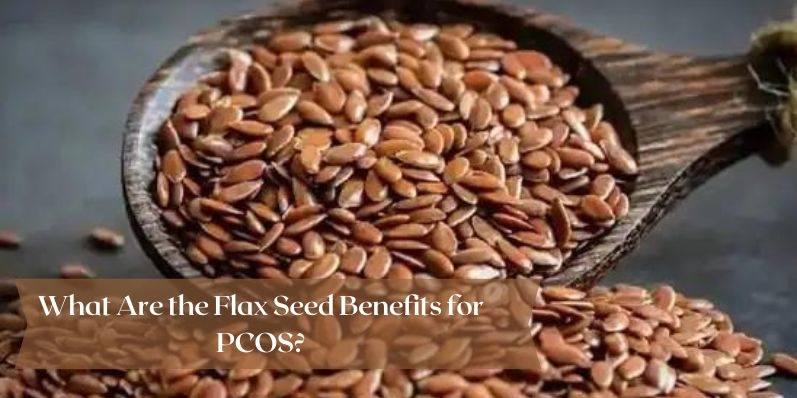
28-10-2023
What Are the Flax Seed Benefits for PCOS?
- Admin
Polycystic Ovary Syndrome (PCOS) is a common hormonal disorder among women of reproductive age, characterized by enlarged ovaries containing small cysts. This condition often leads to irregular menstrual cycles, hormonal imbalances, and a range of symptoms such as acne, hair growth, and weight gain. Managing PCOS requires a holistic approach, which includes lifestyle changes and dietary modifications. One such dietary addition that has gained attention for its potential benefits in managing PCOS is flaxseed.
Understanding Flaxseeds
Flaxseeds, derived from the flax plant (Linum usitatissimum), are tiny seeds packed with powerful nutrients. They are rich in alpha-linolenic acid (ALA), a type of omega-3 fatty acid, lignans, and fiber. These components are believed to have numerous health benefits, including potential positive effects on PCOS symptoms.
1. Balancing Hormones
One of the key challenges faced by women with PCOS is hormonal imbalance, particularly elevated levels of androgens (male hormones). Flaxseeds contain lignans, which are natural compounds that have been shown to modulate hormone levels. By consuming flaxseeds regularly, women with PCOS may help balance their hormones, potentially alleviating symptoms related to excess androgens such as acne and excessive hair growth.
2. Improving Insulin Sensitivity
Insulin resistance is a common issue in PCOS. Flaxseeds have been studied for their role in improving insulin sensitivity. The ALA in flaxseeds is known to have anti-inflammatory properties, which may help reduce insulin resistance. Better insulin sensitivity can lead to more stable blood sugar levels, reducing the risk of weight gain and type 2 diabetes, both of which are concerns for women with PCOS.
3. Aiding in Weight Management
Maintaining a healthy weight is pivotal for managing PCOS symptoms. Flaxseeds are high in fiber, promoting a feeling of wholeness and reducing overall calorie input. Additionally, the healthy fats and protein in flaxseeds can provide sustained energy, making it easier to engage in regular physical activity. By incorporating flaxseeds into their diet, women with PCOS may find it easier to manage their weight.
4. Reducing Inflammation
Chronic inflammation is often associated with PCOS and can exacerbate symptoms. Flaxseeds, with their anti-inflammatory properties, can help reduce inflammation in the body. This can lead to a decrease in symptoms such as pain and bloating, enhancing the overall quality of life for women with PCOS.
5. Supporting Digestive Health
Digestive issues are not uncommon in women with PCOS, and a healthy digestive system is crucial for overall well-being. The high fiber content in flaxseeds supports digestive health by promoting regular bowel movements and preventing constipation. A well-functioning digestive system also aids in the efficient absorption of nutrients, ensuring that the body receives the essential vitamins and minerals it needs to function optimally.
How to Incorporate Flaxseeds into the Diet
Adding flaxseeds to the diet is simple and versatile. They can be ground into a powder and sprinkled over yogurt, added to smoothies, or used as an egg substitute in baking recipes. Whole flaxseeds can also be incorporated into granola bars or oatmeal for a crunchy texture.
Conclusion
While flaxseeds offer promising benefits for women with PCOS, it's essential to approach their consumption as part of a balanced and varied diet. Consulting a healthcare professional or a registered dietitian is advisable before making significant dietary changes, especially for individuals with existing health conditions.
Incorporating flaxseeds into a well-rounded diet, along with regular exercise and stress management, can contribute to better PCOS management. By understanding and harnessing the power of these tiny seeds, women with PCOS can take proactive steps toward improving their overall health and well-being.